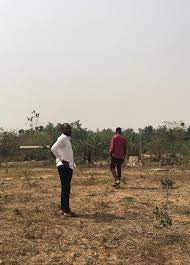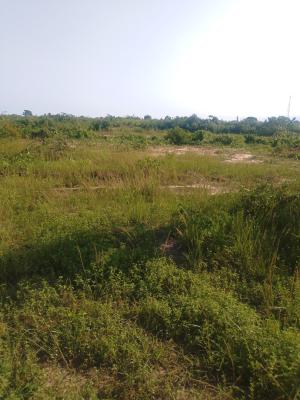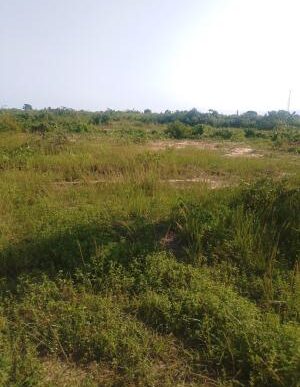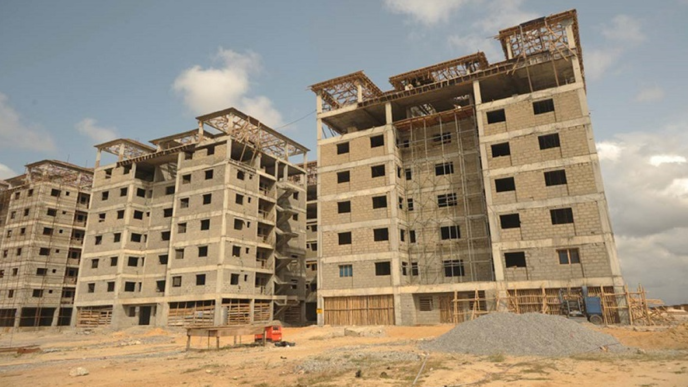Buying land in Nigeria can build wealth fast. However, the market also attracts fraudsters, if you’re searching for land for sale in Nigeria, this guide will protect your money and peace of mind. Below you’ll find practical checks, legal steps, and red flags. Follow them and you’ll be far less likely to be cheated.
Urban growth, rising rents, and infrastructure projects drive demand. Cities like Lagos, Abuja, and Port Harcourt are expanding fast. Therefore, prices climb and opportunities multiply. Scammers follow the money, they exploit urgency, ignorance, and weak verification. So a calm, step-by-step approach is your best defence.
Quick checklist before you even meet a seller
1. Ask for the land’s exact address and GPS coordinates.
2. Request copies of title documents up front.
3. Find the seller’s ID and business registration.
4. Look up comparable prices in the area.
5. Insist on a physical site visit.
These small steps filter out many bad deals early.
How to avoid real estate scams in Nigeria
1) Verify title documents immediately
Ask for originals of: C of O (Certificate of Occupancy), Deed of Assignment, Governor’s Consent, survey plan. A lawyer or trusted property professional should inspect them.
Moreover, confirm the names on the documents match the seller’s ID.
2) Do a Land Search at the State Land Registry
A land search reveals mortgages, government acquisition notices, and pending court cases.
It will show if the title has been tampered with.
Meanwhile, a lawyer can run the search on your behalf.
3) Get an up-to-date survey
A licensed surveyor will confirm boundaries and check encumbrances. Furthermore, compare the survey plan with the site. If the seller refuses a re-survey, consider it a red flag.
4) Visit the property in person
Photos can be staged. Walk the site at different times of day and talk to neighbours and ask about ownership history.
5) Use traceable payments only
Never pay cash or transfer to personal wallets.
Use bank transfers, bank drafts, or escrow accounts with lawyers.
Record every receipt and correspondence.
6) Insist on formal contracts and receipts
All agreements must be written and signed.
A receipt must be issued for every payment.
Keep copies of everything for reference purposes.
7) Confirm developer credentials for estate plots
Check the developer’s past projects.
Ask for permits, master plans, and approvals from the local planning authority. You can also go further by calling all previous buyers for references.
8) Be skeptical of “too good to be true” deals
If the price is far below market value, pause.
Scammers use low prices to lure rushed buyers.
Take time. Compare similar plots nearby.

Common land scams in Nigeria
Knowing the tricks helps you spot them early.
- Omonile fraud: same plot sold to many buyers.
- Forged documents: fake C of O or deed.
- Fake allocation letters: phony estate sales before land exists.
- Land under government acquisition: sold even though the state plans public works.
- Swamp or wrong-location sale: buyer finds different land on handover.
- Impostor agents: people posing as officials or developers.
How to catch a real estate scammer?
1. Ask for original documents and watch the reaction.
2. Call the issuing authority to verify document numbers.
3. Cross-check the owner’s name on the land registry.
4. Request references, then call them.
5. Compare photos to the actual site.
6. Look for pressure tactics or urgent “final offer” messages.
7. If contact info is only mobile and refuses office meetings, be cautious.
How do you know if an agent is scamming you?
- They refuse to provide registration or business details.
- They demand large non-refundable deposits.
- They discourage lawyer review.
- Their online presence looks fake or has no verifiable reviews.
- They avoid meeting at their official office.
- They repeatedly change the story about ownership or documents.
While working with trusted real estate agents
1. Verify registration: ask for professional membership or license.
2. Check track record: review completed projects and client feedback.
3. Meet in a proper office: avoid street meet-ups.
4. Ask for a written agency agreement: it should spell fees and responsibilities.
5. Insist on transparent fees: no hidden charges.
6. Use agents who offer escrow or joint lawyer accounts: this reduces risk.
7. Choose referral-based agents: friends and family recommendations are gold.
legal steps to complete before final payment
1. Confirm the Certificate of Occupancy, Deed of Assignment, and Survey Plan.
2. Verify that Governor’s Consent is in process or obtained.
3. Ensure a registered lawyer prepares and witnesses the conveyance documents.
4. Pay through bank instruments and get official receipts.
5. File for Governor’s Consent and follow up until completion.
6. Lodge the Deed at the Land Registry to update the title.
Do not assume paperwork will be handled after payment. Get proof first.
What to do if you have been scammed
1. Gather all receipts and communication.
2. Report immediately to the police and the Economic and Financial Crimes Commission (EFCC).
3. Contact your bank to freeze transfers if possible.
4. Engage a lawyer to pursue civil or criminal action.
5. Share the warning on social media and real estate forums to alert others.
Swift action increases your chance of recovery.
Conclusion
Land buying in Nigeria can indeed be both rewarding and safe, but only when done with patience, care, and proper guidance. Too many people fall victim to real estate scams because they rush into deals, ignore paperwork, or trust the wrong individuals. The truth is, no matter how urgent or attractive a land offer might seem, a genuine seller or developer will never pressure you to make instant payments.
Success in land ownership is not about speed but about process. Always insist on verifying documents such as the Certificate of Occupancy, Deed of Assignment, Survey Plan, or Governor’s Consent. In addition, carry out searches at the Land Registry to uncover disputes, encumbrances, or government acquisition issues.
These steps might appear time-consuming, but they could save you from a lifetime of financial loss and emotional stress.
Moreover, working with vetted professionals like licensed real estate agents, certified surveyors, and experienced property lawyers cannot be overemphasized.
Finally, buying land in Nigeria is one of the most rewarding investments you can ever make when approached with wisdom and caution.
Share this article with friends and family so they don’t fall for real estate scams.














Great article. So educative